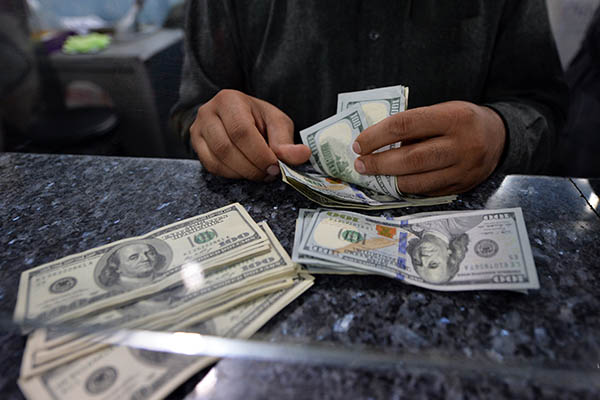
Aamir Qureshi—AFP
As populism mounts, Davos elite told to pay their fair share or risk accelerating voter rebellions globally.
The world’s biggest multinationals have been put on notice to start paying their fair share of tax—or risk accelerating the rise in populism that has carried Donald Trump to the White House.
From Panama Papers to LuxLeaks, recent years’ headlines have been filled with revelations on the secret ways the rich and multinationals, with the help of accountancy firms, shift profits across the globe to drastically cut tax. Perfectly legal, these methods helped divert billions in profit from the taxman, using well established wealth hubs such as Luxembourg, the British Virgin Islands and Switzerland, the host country of this week’s World Economic Forum in the posh ski resort of Davos.
“No, we don’t promote fiscal evasion,” a testy Bob Moritz, chairman of PricewaterhouseCoopers, said when hounded by one journalist in the corridors of the forum. Accountancy giant PwC has been in the center of the LuxLeaks tax storm, after a pair of employees turned whistleblowers leaked thousands of documents that exposed Luxembourg’s huge tax breaks for major companies, including Apple, IKEA and Pepsi.
“This is a political issue of the greatest consequence,” said Angel Gurria, head of the Organization for Economic Co-operation and Development, the Paris-based club of rich nations that has led a global push for fair taxation. “Here at Davos, businesses are listening and if we had their backing things would be a whole lot easier,” he said. Gurria’s message to his audience was clear: “You must pay tax where you turn a profit.”
Amid voter rebellions across the West, politicians and leaders warned corporate captains that the times were fast changing. “The landscape is changing in a radical way,” said E.U. Economy Commissioner Pierre Moscovici, who is leading a push in Brussels to draw up a blacklist of tax havens.
The E.U. has made cracking down on low taxes a high-profile priority since LuxLeaks unveiled two decades of tax deals made when Jean-Claude Juncker, now head of the European Commission, was prime minister of Luxembourg. “We must tackle this much more decisively and much more quickly,” said Mateusz Morawiecki, deputy prime minister of Poland. “Middle-income countries… emerging markets, they are losing huge money,” he said.
Oxfam opened the Davos forum on Monday with its annual assessment of inequality that pointed directly at the tax problem. The charity called for an increase in tax rates targeting “rich individuals and corporations,” as well as a global agreement to end competition between countries to lower corporate tax rates.
Britain’s vote to leave the European Union and Trump’s presidential campaign were symptomatic of inequality in rich countries and a sense that the game is rigged for the better off, it said. Tax games by companies, even if legal, “deny the government the investments for infrastructure, [and companies] the education of their workforce that they need for their businesses,” said Winnie Byanyima, the executive director of Oxfam. Companies were only “working against themselves,” she said.
Also present in Davos, French Finance Minister Michel Sapin warned against any race to the lowest tax rate, in an oblique warning to the U.S. of Trump and post-Brexit Britain.
Trump has promised to slash the U.S. corporate tax rate from 35 percent to 15 percent, while Britain has sent veiled threats that it could undercut the E.U. on tax rates if Brussels does not offer London a good divorce deal. But Davos-goers were dubious of government efforts to trigger any movement towards a higher tax take.
“The European Union seems to want to enact a tax cartel which will be the race to the top [tax rate],” said Daniel Aegerter, a Swiss investor and entrepreneur. “It feels any competition between states will mean a race to the bottom. Obviously the truth lies somewhere in between,” he told AFP.
